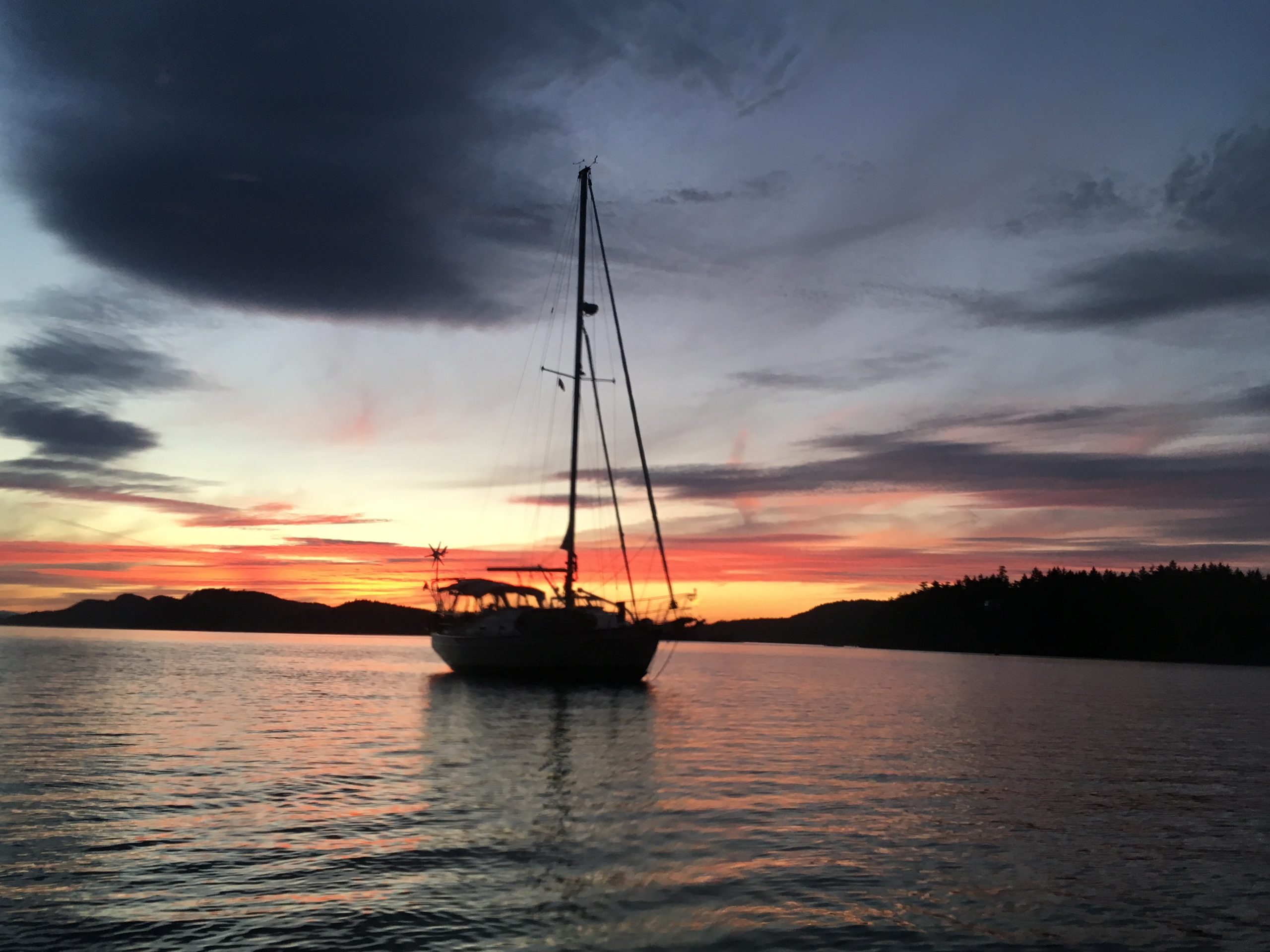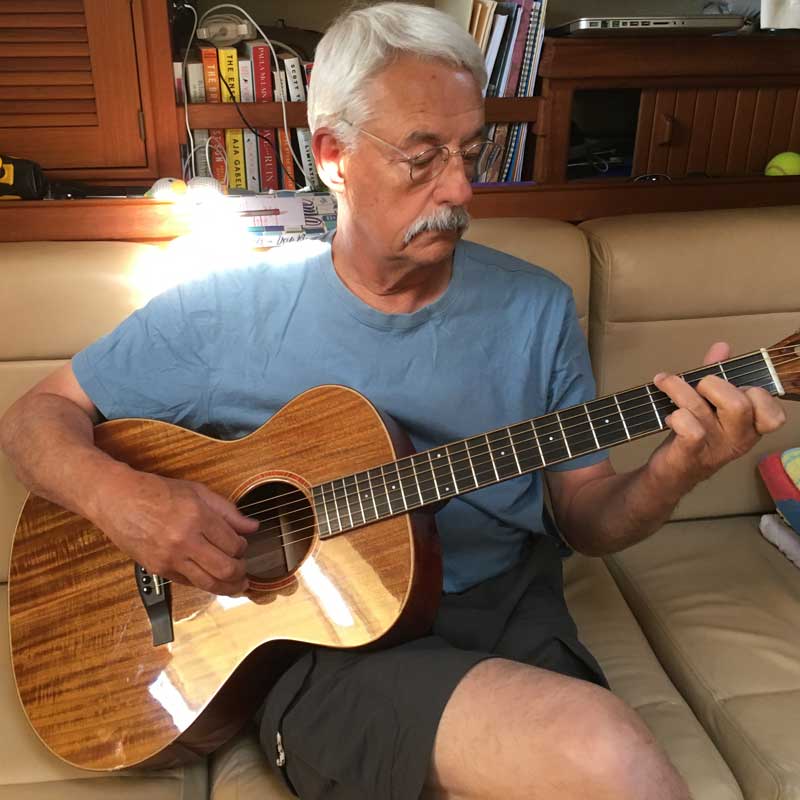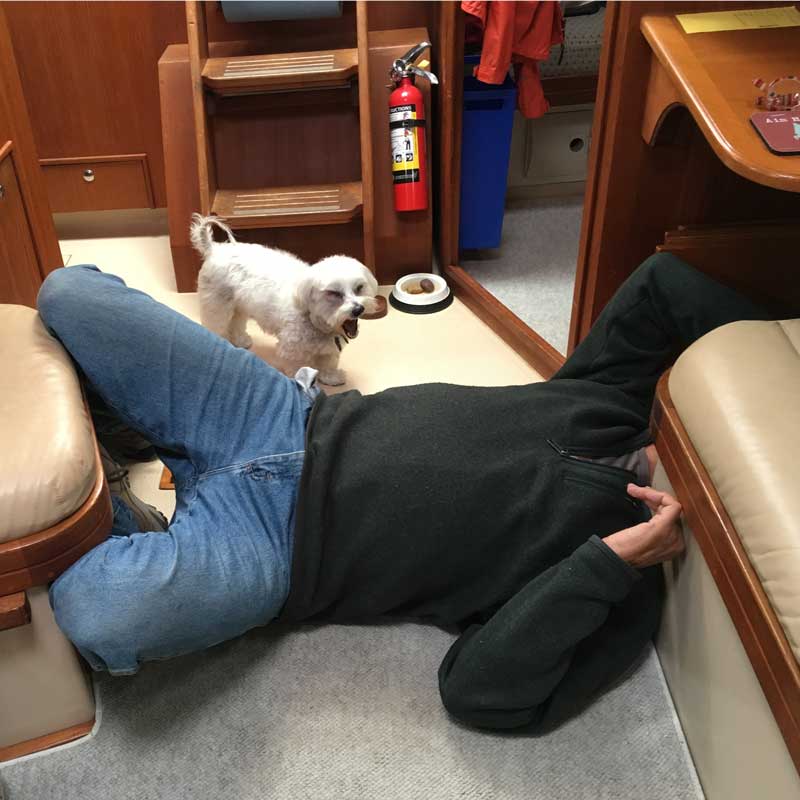
We’re Built For This
…sailors are, my mentor and friend, Nancy Erley said, when we spoke the other day. Nancy is a two-time circumnavigator, and the logistics of isolating in our homes is not unlike that of crossing an ocean in a small boat. Nancy is most certainly built for this.
We’d been talking about “provisioning” for the stay-at-home orders we’re living under, but it’s not just grocery shopping that parallels–I find myself thinking of meal planning, checking the pantry, reviewing recipes, and coming up with back-up meals (contingency planning for if my next trip to the store gets pushed farther out, just as it might to sit out a storm at anchor, which seems an apt metaphor right now). When you can run to the store to prepare what you decided to cook any given night, you don’t have to do that. If you’re cruising on a sailboat where you won’t get to a store for two, three, or more weeks, and when you do, you’ll be walking to and from the store, carrying all that you bought, then doing a big shopping trip before you cast off can make life a lot easier. Here on land, it can make life a lot easier and safer now that our family’s, and indeed everyone’s, health depends on minimizing exposure to each other. And thinking safety first is one of the things that life on Kagán has taught me.
I don’t generally like grocery shopping or cooking, not on land, anyway. But on the boat, it’s all part of cruising, and I enjoy reading recipes and trying new ones. Seems that when the pace slows from 75 mph to 6 knots, prepping and sharing meals becomes part of the rhythm I love about life on the boat. It’s not completely unlike the slower rhythm life has assumed in this time of social distancing, minus the background music of water lapping on the hull.
It’s all about planning ahead. Inventory the pantry, freezer, and fridge. Check recipes, old standbys and ones you’ve been meaning to try. Make a list and organize it in sections, like the store is–produce, canned foods, spices, baking supplies, beverages, paper goods, etc. At the store, get everything that you need in one section before you move on to the next. I’ve heard that in some areas stores have instituted flow patterns, to help maintain social distancing. If yours has, and you know the direction, organize your list to flow through the store the way you will be. How’s that for smooth sailing on a provisioning trip?

Stowing groceries is also a strategic operation for a long-term cruiser–first, because it actually makes a difference in balancing the boat, and second, because who wants to be crawling into the hard-to-get-to compartments on a routine basis. At home, we don’t have to lift a mattress to get to the extra 12-pack of sparkling water or a bag of kibble for Capi, but we have rearranged the pantry a bit, since we’re shopping for much longer periods than we usually do in our land-based life.
In the large, deep, top-loading fridge on Kagán, making sure to stow what’s to be used later in the cruise in the depths saves electricity by minimizing the time the fridge is open, because what we need early and often is handy. Saving electricity can mean an extra night or two on the hook in a favorite anchorage. On land, you don’t have to worry about listing to port or starboard, but stowing your provisions thoughtfully can make life easier, and result in wasting less food. First night post-shopping, serve those baby greens for salad, they won’t hold long. Then use the romaine. And later on, cole slaw (because cabbage will hold while you sail across an ocean or wait an extra week to venture to the store). In all my years of cruising, I’ve learned that a little planning goes a long way. So, yes, I am built for this.
Another way sailors are built for this–we routinely live with our mates in close quarters for long periods. Kagán has been my self-contained, 35-foot sailing summer home for 15 years. By comparison, my modest sized adobe house is palatial. Though Kagán is very well appointed, there’s only so much elbow (and foot and hip and head) room on a 35-foot boat. We’ve learned to give each other space and time to be alone together on the boat–me reading or writing in the cockpit/Eric playing guitar in the salon or me doing yoga on the coach roof/Eric drinking coffee and reading in the cockpit. So we’ve adapted well to the situation of being in the house together much more than usual, with the added bonus of not tripping over each other (literally), an inevitable part of boat life where someone’s feet are nearly always in the way of wherever someone else wants to be.



Sailing is a dream many hold, and I wonder how many have longed for something like this long-term “cruise” right at home without realizing it. Certainly we haven’t longed for the grief for those we’ve lost, the anxiety around who may be struck next, concern for those on the front lines of this crisis, or fears about finances. But maybe slowing life down a bit will provide some time and space to dream, reflect, and plan for what might be next. I know that my summers on Kagán have given me that over the years. Amidst the anxiety of the moment, I’m trying to re-connect with that rhythm. I love the phrase, you can’t change the wind, but you can adjust your sails. Now is one of those times.
Note: I’d be remiss if I didn’t mention that sailors are also built for the TP problem. Any sailor who has had to unplug a marine head will tell you that three squares of TP at a time is the way to go (yes, pun intended). Do that and watch your valuable commodity go farther, see, you’re built for this too.

And a more important note: Fellow sailors, stay home! I’m writing this from my house, where I’m sheltering in place. And so should you. Thinking you can ride the coronavirus pandemic out long-term on your boat is irresponsible. Because there is just so long you can provision for, just so much waste your holding tank will hold, and you need to think of the impacts your going to shore will have on communities already struggling with scarce resources. Don’t be entitled. The seas will be there for all of us when fair winds blow again. For those full-time cruisers without a home port, I hope you can find a safe harbor to shelter in until those metaphorical fair winds do come.

Recent Comments